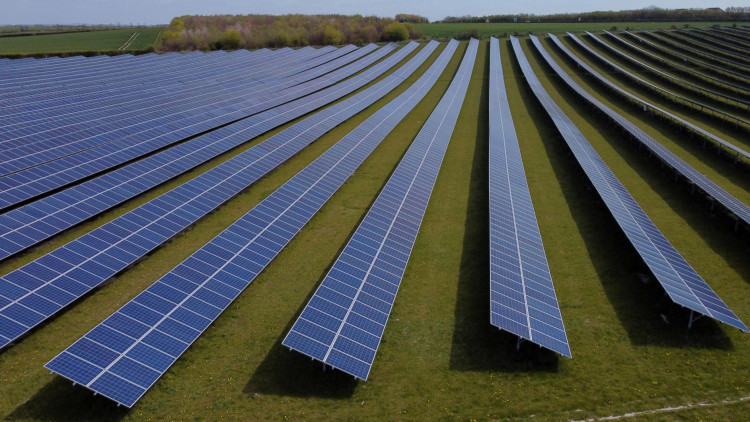On Wednesday (Aug. 24), the industry ministry of China published a notice to encourage the growth of the nation's solar industry and avoid market monopolies while also promoting the creation of power and storage projects.
According to the government, there is an "urgent need to deepen industry management" because of imbalances between supply and demand, sharp price swings, and hoarding in the photovoltaic industry's supply chain.
The industry ministry cited price bidding, monopoly practices, and the creation and distribution of counterfeit goods as examples of illegal activities and advised local market supervision departments to "strengthen supervision and management... (and) severely crack down on illegal activities in the photovoltaic industry."
In order to support peak shaving and the stability of the industrial supply chain, the ministry also warned against hoarding and reselling materials and resources within the sector and urged relevant businesses to build reserves of polysilicon, batteries, and other materials.
"Hoarding is strictly prohibited", it said.
The warning from the ministry comes in response to a report released last month by the International Energy Agency (IEA), which stated that "the world needs more diverse solar panel supply chains." According to the agency, Chinese industrial and innovation strategies aimed at increasing solar panel output had contributed to solar PV becoming the most accessible energy generation technology worldwide. Nevertheless, this has also resulted in imbalances in solar PV supply chains, the IEA Special Report on Solar PV Global Supply Chains stated.
Over the past ten years, it was claimed, that China has increasingly displaced Europe, Japan, and the United States as the world's primary producers of solar panels. "China's share in all the key manufacturing stages of solar panels exceeds 80% today, according to the report, and for key elements including polysilicon and wafers, this is set to rise to more than 95% in the coming years, based on current manufacturing capacity under construction."
According to IEA executive director Fatih Birol, China had contributed to lowering solar PV costs globally and facilitating the switch to sustainable energy. But the world still needs huge annual additions of solar PV capacity, which "need to more than quadruple by 2030 to reach net zero emissions by 2050", Birol said.
Based on the IEA, this meant that existing production facilities would need to be upgraded and that the global output of essential components for solar panels, such as polysilicon, ingots, wafter, cells, and modules, would need to more than double from the current levels.





